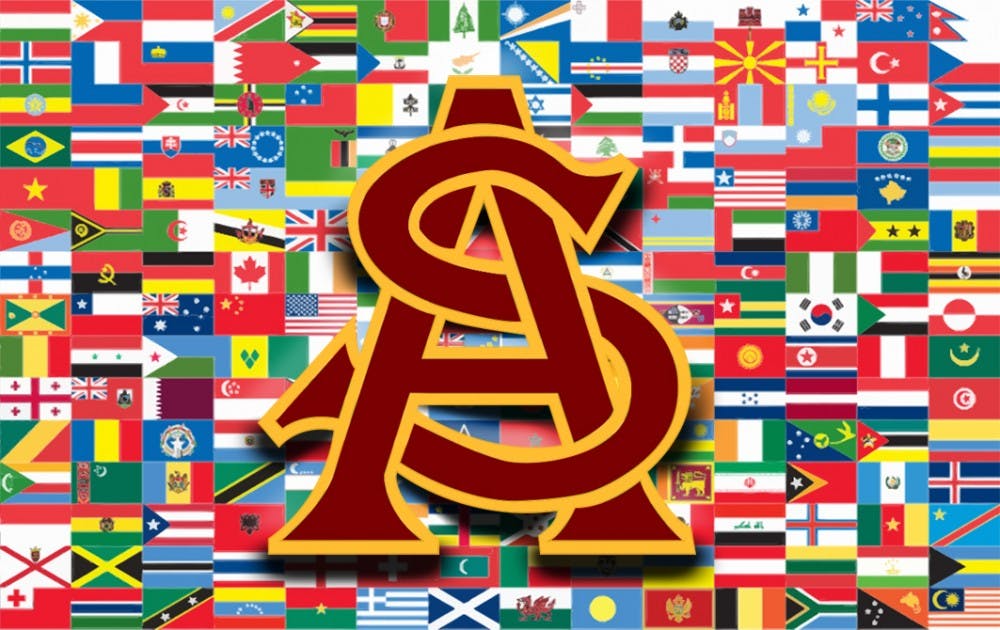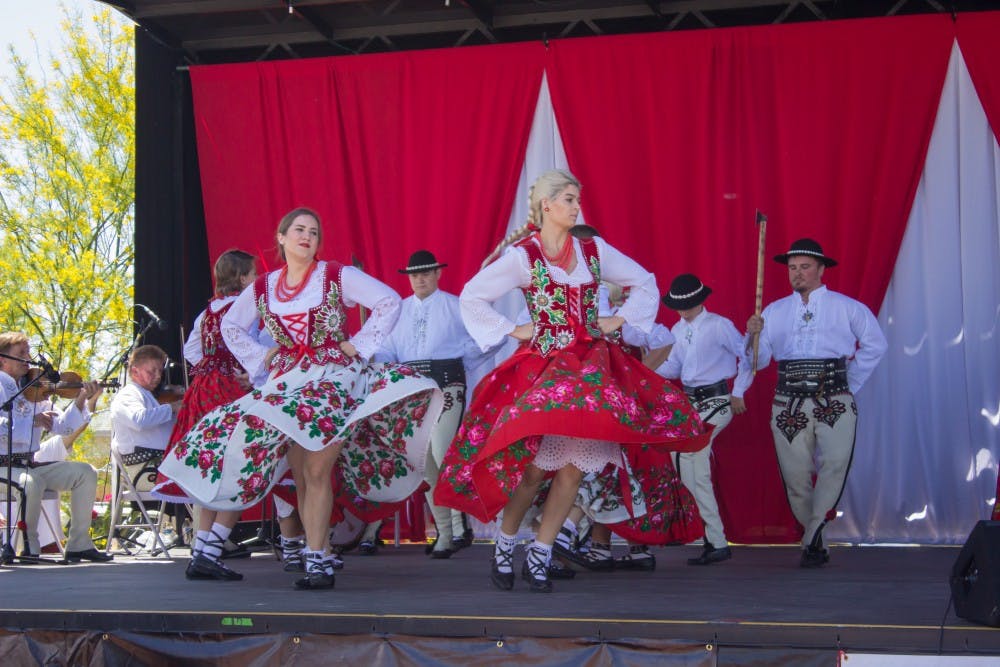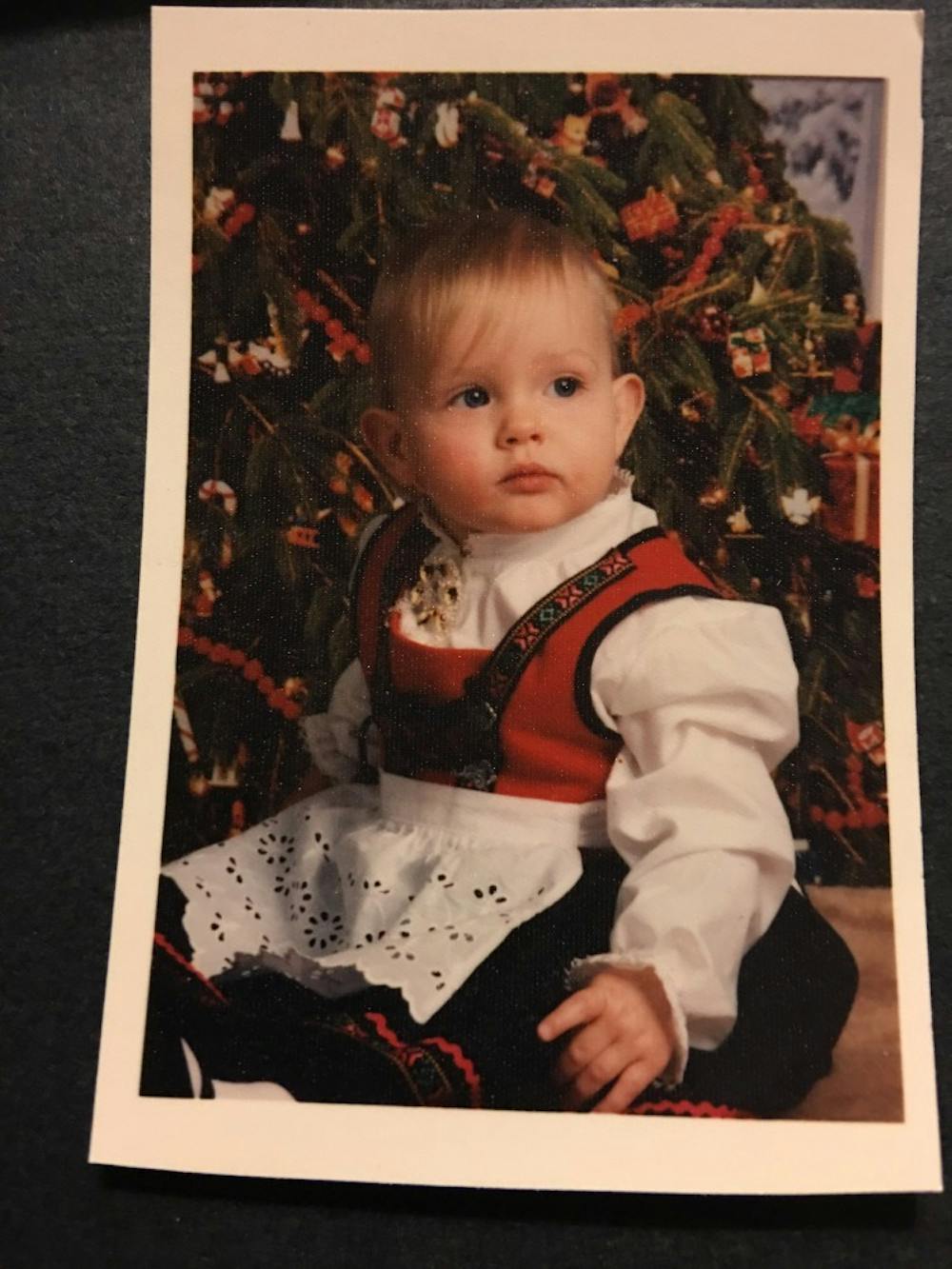In part two of the Home Away From Home series, a State Press reporter explores Polish, Norwegian and Egyptian cultures through the traditions practiced by ASU students.
Veronica Galek: Birthdays twice a year
Veronica Galek, a journalism sophomore on ASU’s downtown Phoenix campus, is a first-generation Polish student. She said she goes to the Polish Festival of Arizona every spring.
Galek said she usually eats traditional food at the festival and sees the Gorals, or mountain dancers. The Polish Festival is organized by the Our Lady of Czestochowa Parish church. This year, the festival was April 14-15.
Galek incorporates Polish traditions into her celebration of Wigilia, or Christmas Eve dinner. One interesting tradition of Wigilia involves having a layer of hay under a white tablecloth to commemorate Jesus's birth in a barn.
When people move to other countries, their parents often try to make sure they can still speak their native tongue and practice their religion. Galek said she grew up going to Saturday school to learn Polish and practice Roman Catholicism.
Polish people also celebrate name days.
“(Your) name day is a feast day for the saint you were named after,” Galek said.
For example, Galek was named after Saint Veronica, so the saint’s feast day is her name day.
“It's equivalent to a birthday,” Galek said. “And some Polish consider it more important than a birthday.”
Silje and Stina Beattie: Everyone gets a Christmas pig
Two Norwegian sisters attending ASU, Silje and Stina Beattie, both seniors majoring in sustainability, said that there are a lot of holidays in Norway that are the same as those in the U.S., but they happen on different days, or they get a little more time off for them. As a result, the sisters don't always follow a lot of the traditions they would in Norway.
Easter is one example. Silje Beattie said that everyone always gets a week off from work in Norway, so families would go camping in the mountains, but that is not frequently an option here.
The most important Norwegian traditions the Beatties practice are associated with Christmas.
“Porridge would be offered around Christmas time to the barn nisse, which is like a gnome that protects the household and all the animals,” Silje Beattie said. “You feed the barn nisse, so it will continue to watch over us and the pets.”
It is also a Norwegian custom to put an almond in the porridge. Whoever finds the almond gets a Christmas pig made of marzipan.
Silje Beattie said their mother would cheat and put an almond in everyone’s bowl, so no one would fight, and she and Stina Beattie would get chocolate pigs when they were little since they didn’t like marzipan.
May 17 marks Norwegian Independence day. In Norway, people dress up in their traditional costume and carry around flags.
“We do that sometimes too, but not with the costumes anymore,” Silje Beattie said. “We used to have some when we were little.”
Mariam Eldessouki: Traditional and Americanized at the same time
Mariam Eldessouki, a senior exercise and wellness major, is a naturalized immigrant.
Born in Egypt, her family moved to Chicago when she was two years old. However, they moved back to Egypt when she was seven and returned to the U.S. when she was 16.
Today Eldessouki aspires to go into physical therapy and eventually become a doctor. Having lived in both Egypt and the U.S., Eldessouki said she has a greater appreciation for education.
The first time her family moved to the U.S., her dad had received a scholarship to get his Ph.D at the Illinois Institute of Technology. Eldessouki said they loved it so much here that they wanted to come back. So her dad got a job in Arizona.
As of November 2017, Eldessouki's family are U.S. citizens.
She and her family continue to follow their Muslim traditions in the U.S. They don't eat pork, and drinking and smoking are strictly prohibited.
“We still pray five times a day,” Eldessouki said.
She commented on the fact that her friends back in Egypt are more westernized than she is in some ways, and some of them have boyfriends. In her culture, dating is often off limits for certain ages.
“I didn't just move out when I turned 18,” Eldessouki said. “I still live with my parents.”
In Egypt, and many Asian countries, people typically continue to live with their parents after turning 18.
However, Eldessouki also said she was more westernized than her friends in Egypt in other ways, especially in terms of pop culture. She watches more Hollywood movies than her friends in Egypt, which has its own world-renowned film culture.
When the topic of becoming whitewashed came up in conversation, Eldessouki gave her own definition.
“Whitewashed is when you start to deny the values and customs that you know for a fact, just because you live here now,” she said.
Eldessouki is proud to be both Egyptian and American.
“I am a hundred percent American as much as I am a hundred percent Egyptian,” she said. “I am what I am. I'm so thankful to live here.”
Reach the reporter at ranjanivk@gmail.com or follow @RanjPhoenix on Twitter.
Like The State Press on Facebook and follow @statepress on Twitter.






